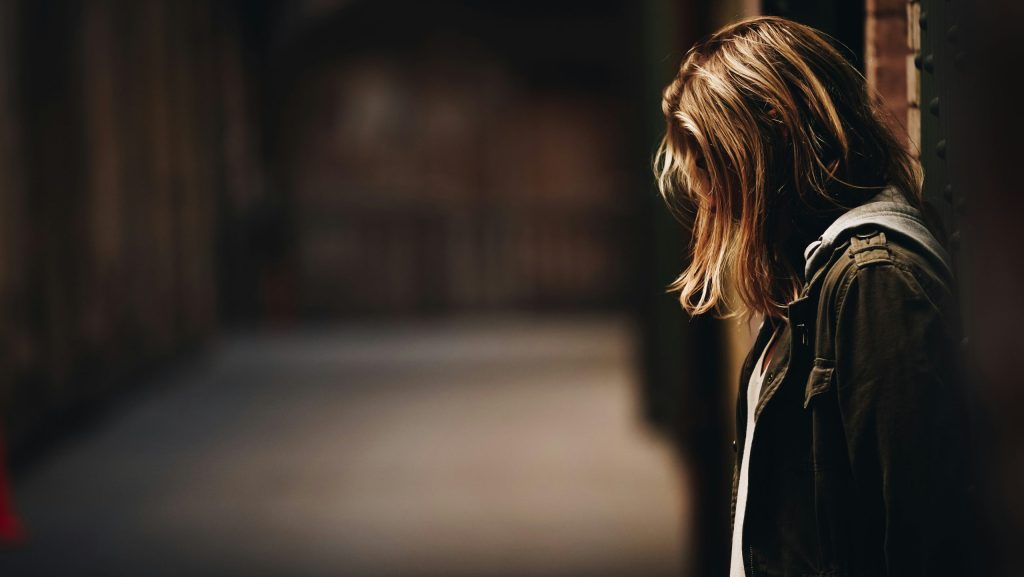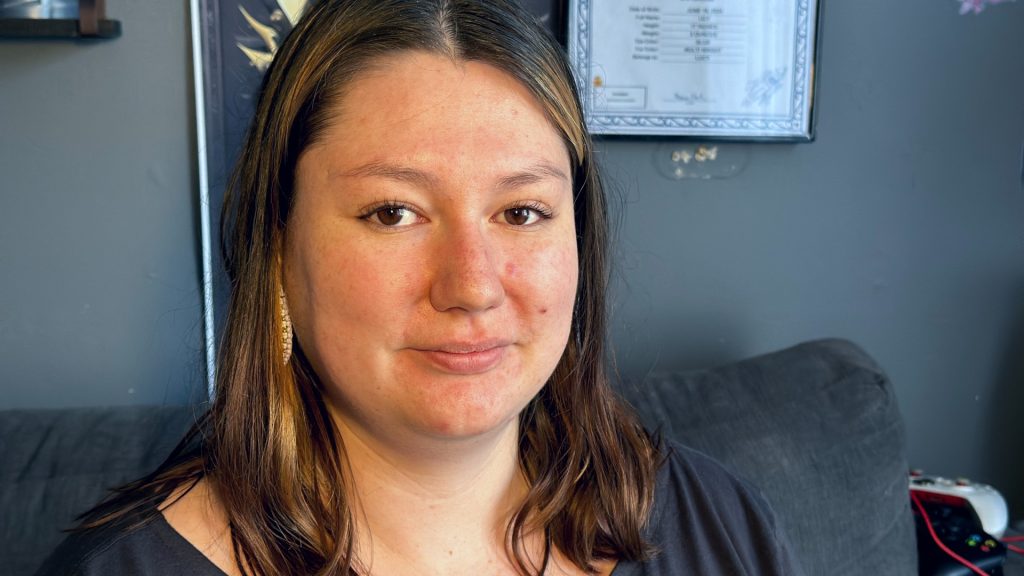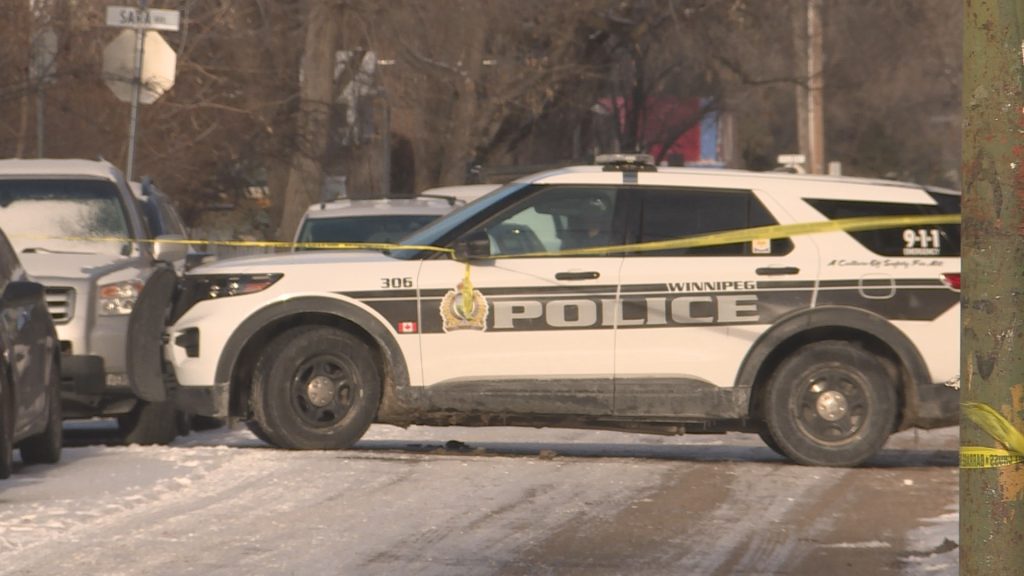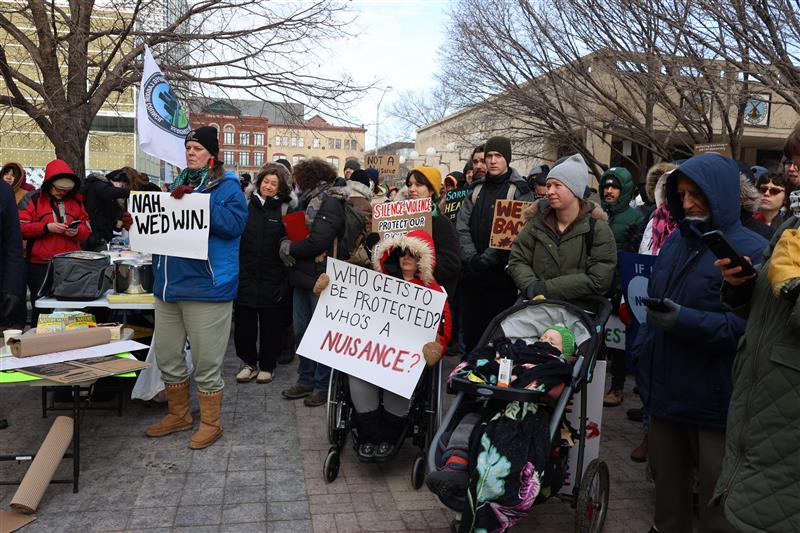Despite improved supports, victims of domestic violence still falling through cracks: advocates

Posted November 6, 2024 12:22 pm.
Last Updated November 6, 2024 12:30 pm.
Sarah Simpson-Yellowquill couldn’t quite understand why a counsellor was recommending she contact a women’s shelter.
“I’m not in danger, I’m not in an abusive relationship,” were her thoughts at the time.
Looking back, Simpson-Yellowquill now says her former partner abused her emotionally, physically and financially during an eight-year relationship that began in her early 20s.
She found herself increasingly isolated and would lie to family and friends about the relationship in an attempt to protect it.
“I think I started having internal guilt, thinking that it was my fault that a lot of this was happening towards me or allowing it to happen,” she recounted.
“I thought, I just have to work harder. I have to be a better partner. I have to change things about myself so he wouldn’t be as angry all the time.”
Domestic violence resources available
- Domestic Violence Support Service
- Breaking the Silence on Domestic Violence
- Manitoba Moon Voices (list of resources across Manitoba)
- Directory of Manitoba helplines
It’s a common thought process for victims trapped in abusive relationships, with many not realizing how dangerous the situation may have become.
So when a counsellor weighed in, something clicked for Simpson-Yellowquill. “I think that kind of changed my way of thinking, that someone could see from the outside that it wasn’t a healthy relationship and that I should be seeking help,” she said.

There was also the time Simpson-Yellowquill’s partner broke down her door after they were already separated. The police officer who responded to the call urged her to file a report.
That advice was in stark contrast from previous police responses, Simpson-Yellowquill recalls. She says she called for help countless times during that relationship – many to police, adding most made her feel like the violence was her fault.
“(My former partner) would know I would try to call for police and he hated that, so he would also take my phone or my shoes or my car keys so I couldn’t leave.”
In one instance, she claims, police told the couple to quiet down during a disturbance call, rather than address the root of the problem.
“I was kind of like, OK, sure, I’ll just tell him to only fight with me or abuse me between the daytime hours,” said Simpson-Yellowquill, now a domestic violence advocate.
That’s why, when that one officer urged her to file a police report after her door was broken down, she listened.
“It wasn’t until I had an officer that seemed well (versed) in safety and wellbeing for myself as a woman and saying it’s OK to take a step forward and press charges as scary as it might be, so I think just having that guidance and support and knowing where to turn to.”
Domestic Violence Awareness Month
Simpson-Yellowquill’s experience clearly shows how difficult it can be to escape domestic violence. Coinciding with Domestic Violence Awareness Month this November, advocates are calling for more support.
Survivor and advocate Zita Somakoko says many victims in dangerous relationships are still blamed, making the fear to leave just as much of a barrier as finding physical supports like housing.
“This is the society we live in and this (is) what needs to change,” said Somakoko, the founder of Breaking the Silence on Domestic Violence (BTSDV).
“Many remain in these relationships because they know they cannot support themselves.”
Somakoko claims 85 per cent of violent crimes in Manitoba are due to domestic violence, with Winnipeg being the most violent city for violent crimes per capita.
“Number one call to our emergency line in Manitoba — domestic related,” she said.
She does not believe domestic violence should be blamed on other factors like mental health issues or addictions, calling those factors “amplifiers.” She believes domestic violence is a choice people make.
The case of Camille Runke
Breaking the Silence on Domestic Violence began after the murder of 49-year-old Camille Runke, who was gunned down by her ex-husband in 2015. Somakoko said what resonated with her most was learning Runke tried to get a protection order from her ex-husband, but was denied.
“I was watching the news with my children,” Somakoko recounted. “As the picture came on the screen and I heard that, I started wailing. I was screaming, literally, I don’t know what happened to me. … I don’t know for how long I was wailing. That night, I couldn’t sleep.”
Somakoko says the morning after Runke’s death was reported, she was on the phone with different domestic abuse organizations and people in government to find out what they were going to do to prevent others from dying due to intimate partner violence.
“How is that nobody was able to help this woman and now she’s dead, and we call it unfortunate?” she asked.
Somakoko is calling for more supports for people transitioning out of a life of being a victim of domestic violence, such as financial aid to help secure food and housing; educational resources so people can improve their quality of life; and child care.
Her organization, which runs on volunteers, tries to help as best as it can with wraparound services. Among other resources they offer counselling; language classes so people can learn English and French; and infant and toddler care while people attend.
Manitoba introduces new bill
Somakoko says education and training about domestic violence in all sectors are needed, primarily within the justice system and in workplaces.
Last week, the Manitoba government introduced legislation that would expand continuing education requirements for prospective provincial court judges and judicial justices of the peace in areas of intimate partner violence, coercive control and the experiences of Indigenous and 2SLGBTQ+ people.
Somakoko hopes the bill pushes through because she believes people need more government support so cases like Runke’s don’t happen again.
“This issue is not easy. It’s a multi-faceted issue,” she said.
“We are not where we used to be, but we are certainly not where we should be yet.”
Meanwhile Simpson-Yellowquill says she feels stronger now, and is an active advocate for people in abusive relationships of all kinds.
“I hope that others experiencing this in any type of relationship also realize that even if he’s not physically hitting you, there’s other, I feel like, abuse that happens that people don’t realize that it’s abuse,” Simpson-Yellowquill said.








